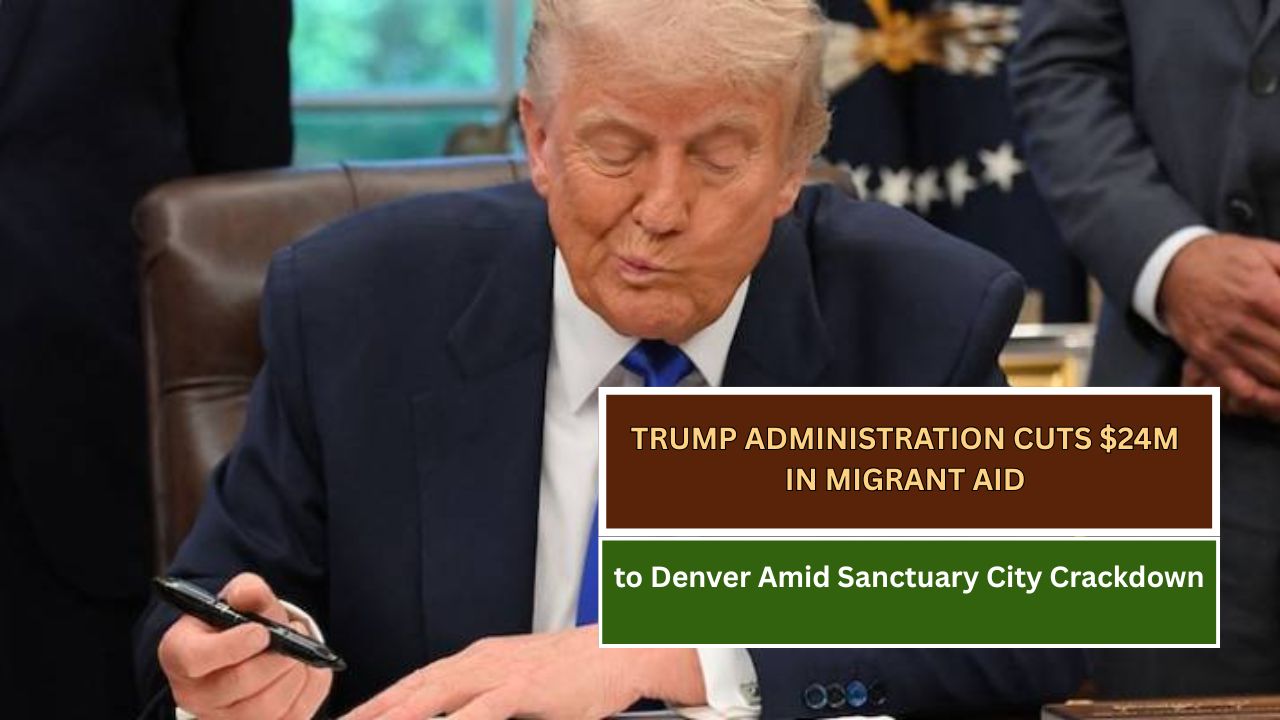Denver is facing a major setback after the Trump administration rescinded $24 million in federal grants intended to support the city’s migrant aid programs. The sudden withdrawal jeopardizes emergency services for newly arrived migrants and reflects a broader federal crackdown on sanctuary cities. City officials are now grappling with the ripple effects on their budget and public services.
The funding was part of a federal initiative to help cities like Denver manage the cost of sheltering and caring for migrants. It supported emergency shelter, food, transportation, and medical care. But the Trump administration pulled the funding abruptly, citing the city’s noncompliance with federal immigration enforcement priorities. The move highlights growing friction between federal immigration policy and sanctuary jurisdictions that limit cooperation with federal immigration authorities.
Abrupt Funding Withdrawal Disrupts Denver’s Migrant Support Plans
City officials learned of the funding cut during an April city council meeting. Justin Sykes, Denver’s Budget Director, said the city “does not have the capacity” to cover the $24 million shortfall if the funds aren’t reinstated. Denver had already received $8 million of the originally promised $32 million through FEMA’s Shelter and Services Program (SSP), but it remains unclear whether the city will have to repay those funds.
The SSP had been a critical resource, helping offset the costs of providing emergency shelter to migrants released from federal custody. The funding cut comes just as Denver faces a sustained increase in migrant arrivals. City spokesperson Jon Ewing noted that the city’s 2026 budget did not anticipate the loss of these federal dollars, placing even more pressure on local resources.
Federal Justification Ties Cuts to Immigration Enforcement
In a letter to Denver officials, FEMA Administrator Cameron Hamilton said the city’s sheltering policies conflict with the Trump administration’s immigration enforcement goals. The letter emphasized that federal grant money should not support actions inconsistent with Department of Homeland Security priorities.
This move follows executive orders issued by President Trump to penalize sanctuary cities. The orders call for withdrawing federal funding from cities that do not cooperate with ICE and expanding deportation efforts. Similar action has already affected cities like New York, which recently lost $188 million in federal migrant aid.
The Trump administration has rescinded $24 million in federal grants promised to the City of Denver, following through on a threat to withhold funding over the city’s sheltering of newly arrived immigrants.
— KOAA News5 (@KOAA), April 30, 2025
Budget Strains and Broader Community Impact
Denver’s 2025 budget is approximately $4.4 billion, a 2.5% decrease from the previous year. While city leaders hadn’t expected to receive the entire $32 million grant at once, the sudden cutoff may force reallocation of funds from other departments to continue supporting migrant services. Officials warn this could lead to cuts in essential services beyond immigration.
The funding loss adds political pressure on local leaders, who must now find alternative solutions under tight fiscal conditions. With federal support uncertain, Denver faces an uphill battle to meet humanitarian needs without compromising its overall budget priorities.
Legal Challenges Add Uncertainty to Funding Cuts
Legal battles over the Trump administration’s effort to strip funding from sanctuary cities continue to play out. Federal courts have blocked similar cuts in cities like Minneapolis, San Francisco, and Portland, ruling that the executive branch cannot impose new funding conditions without congressional approval. These rulings cast doubt on the long-term enforceability of such funding cuts.
Denver’s experience underscores the ongoing clash between federal immigration policy and local governance. How courts and political negotiations resolve these disputes will shape the future of federal support for cities navigating immigration and humanitarian challenges.
This article has been carefully fact-checked by our editorial team to ensure accuracy and eliminate any misleading information. We are committed to maintaining the highest standards of integrity in our content.

Outside of work, he enjoys playing chess, following cricket, and writing short stories. His commitment to integrity and in-depth analysis strengthens OTE News’ mission of providing trustworthy journalism.



